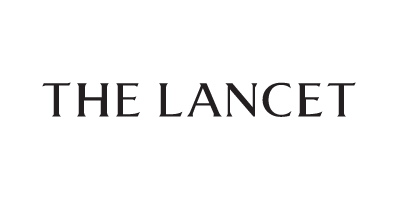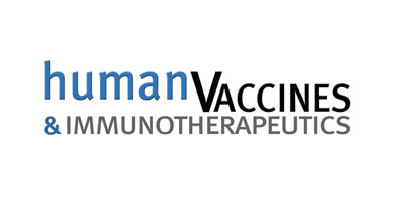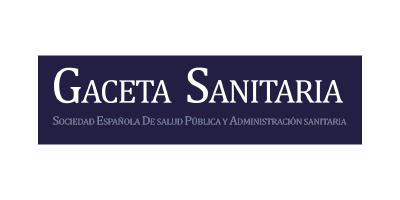
by admin | Oct 3, 2023 | Publications
Shirin Heidari, Els Torreele, Ahmet Metin Gülmezoglu, Sharifah Sekalala, Naomi Burke-Shyne, Gabrielle Landry Chappuis
The Lancet – October 03, 2023
From HIV and influenza, to Zika virus, Ebola virus disease, and most recently COVID-19, the gender implications of disease outbreaks and the detrimental effects of a lack of a gender lens in the way governments and societies respond to large-scale and contained epidemics are well documented. Pandemics create differential vulnerabilities with particular negative implications for women in all their diversities and their health, and further exacerbate long-existing, deep-rooted gender inequalities and social injustices, more severely disadvantaging women in low-income and middleincome countries, women in marginalised communities, and women who are criminalised.
Continue reading

by Gendro | Sep 27, 2023 | Publications
Ophira Ginsburg, Verna Vanderpuye, Ann Marie Beddoe, Nirmala Bhoo-Pathy, Freddie Bray, Carlo Caduff, Narjust Florez, Ibtihal Fadhil, Nazik Hammad, Shirin Heidari, Ishu Kataria, Somesh Kumar, Erica Liebermann, Jenna Moodley, Miriam Mutebi, Deborah Mukherji, Rachel Nugent, Winnie K W So, Enrique Soto-Perez-de-Celis, Karla Unger-Saldaña, Gavin Allman, Jennifer Bhimani, María T Bourlon, Michelle A B Eala, Peter S Hovmand, Yek-Ching Kong, Sonia Menon, Carolyn D Taylor, Isabelle Soerjomataram
The Lancet – September 26, 2023
Women interact with cancer in complex ways, as healthy individuals participating in cancer prevention, as patients, as health professionals, researchers, policymakers, and as unpaid caregivers. In all these domains, women often are subject to overlapping forms of discrimination, such as due to age, race, ethnicity and socio-economic status, that render them structurally marginalized. These myriad factors can restrict a woman’s rights and opportunities to avoid cancer risks, are a barrier to diagnosis and quality cancer care, maintain an unpaid caregiver workforce that is predominantly female, and hinder women’s professional advancement. The Lancet Commission on women, power and cancer was created to address urgent questions at the intersection of social inequality, cancer risk, and outcomes, and the status of women in society.
Continue reading

by admin | Apr 6, 2022 | Publications
Tim Nutbeam, Lauren Weekes, Shirin Heidari, Rob Fenwick, Omar Bouamra, Jason Smith, Willem Stassen
BMJ Open – April 6, 2022
Objectives. To identify the differences between women and men in the probability of entrapment, frequency of injury and outcomes following a motor vehicle collision. Publishing sex-disaggregated data, understanding differential patterns and exploring the reasons for these will assist with ensuring equity of outcomes especially in respect to triage, rescue and treatment of all patients.
Continue reading

by admin | Jan 25, 2022 | Publications
Lavanya Vijayasingham, Shirin Heidari, Jean Munro, Saad Omer, Noni MacDonald
Human Vaccines & Immunotherapeutics – January 25, 2022
The influence of sex and gender in immune response and vaccine outcomes is established in many disease areas, including in COVID-19. Yet, there are notable gaps in the consideration of sex and gender in the analysis and reporting of COVID-19 vaccines clinical trial data. The push for stronger sex and gender integration in vaccines science should be championed by all researchers and stakeholders across the R&D and access ecosystem – not just gender experts.
Continue reading

by admin | Jan 22, 2022 | Publications
Shirin Heidari
Gaceta Sanitaria – January, 2022
We failed to adequately launch a gender transformative response to COVID-19 pandemic, data by sex on a variety of indicators for most countries are hard to find. Some symptoms reported as common of COVID-19 infection, are more prominent in men, while others are more prominent in women, one cannot with certainty exclude that some of the differences observed could be due to gender bias in the management of cases in health services. The gender implications of the pandemic reach wide and far. Inequalities can be further aggravated as sex and gender intersect with other axes of inequality.
Continue reading

by admin | Jan 18, 2022 | Publications
Abha Saxena, Emily Lasher, Claire Somerville, Shirin Heidari
OXFORD Academic, International Health – January 18, 2022
Despite a growing consensus on the importance of integrating sex and gender in health research, research across disciplines continues to be conducted and reported without a gender focus. Research ethics committees (RECs) can play a particularly powerful role in identifying the gender gaps at an early stage of the development of research protocols. Their role is missing in the dialogue related to improving gender awareness and analysis in health research. A scoping review was conducted to examine the extent to which RECs discuss and consider the inclusion and analysis of sex and gender in health research and to examine the literature regarding the gender balance of RECs. The limited literature around gender and research ethics reveals the power and potential of RECs to ensure that gender dimensions are thoughtfully included in health research, and sheds light on the gaps that exist. These include an under-representation of women on RECs, a lack of awareness of the importance of gender-related aspects in health research and a paucity of gender-related training to RECs. Guidelines such as the Sex and Gender Equity in Research guidelines are required for RECs to strengthen the ways in which health research is gendered from conception of a research protocol to its publication.
Continue reading





